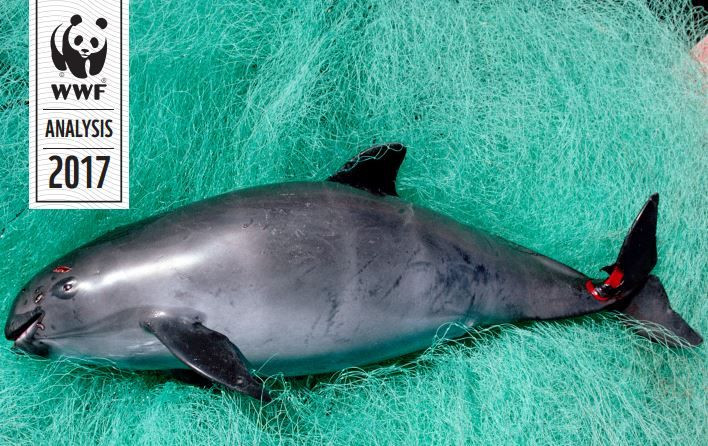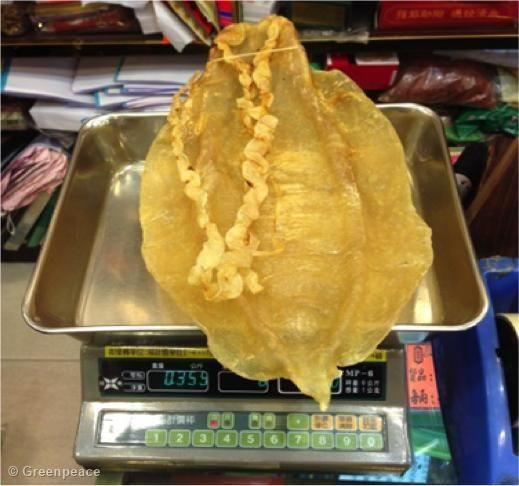Leonardo DiCaprio Working With Mexico, Carlos Slim To Protect Vaquita Porpoise

The world’s most endangered marine mammal has received support from one of the world’s most popular conservationists. Oscar-winning actor Leonardo DiCaprio signed an agreement Wednesday with Mexican President Enrique Peña Nieto and billionaire Carlos Slim to protect the vaquita porpoise.
Honored to work w/ President Nieto (@EPN) & Carlos Slim to ensure the future viability of marine life in the Gulf. https://t.co/QxRoL08Nd8
— Leonardo DiCaprio (@LeoDiCaprio) June 7, 2017
Found only in Mexico’s Gulf of California, or the Sea of Cortez, only about 30 individuals of the species are thought to still exist, according to data from World Wildlife Fund (WWF). That is down from about 600 individuals in a 1997 survey, and the porpoise is classified as “critically endangered” by the International Union for Conservation of Nature (IUCN) in its Red List of Threatened Species. The main reason for the decline in the vaquita population is the illegal use of gillnets for fishing.
The agreement signed by the three men Wednesday aims to eradicate the use of gillnets in the region and makes an earlier temporary ban on them permanent. It will be backed by both the Leonardo DiCaprio Foundation and the Carlos Slim Foundation, which will fund local development and help with fishing options that don’t use gillnets, the Associated Press (AP) reported. The agreement is supported by a number of other organizations, including WWF.
Read: WWF, Leonardo DiCaprio Work Together To Save The Vaquita
“This action is a critical step towards ensuring that the Gulf of California continues to be both vibrant and productive, especially for species like the critically endangered vaquita,” DiCaprio said, the AP reported.
Gillnets are used in the region to catch totoaba, a fish whose swim bladder is considered a delicacy in China. One kilogram (2.5 pounds) of the bladder can fetch thousands of dollars, making it difficult for the Mexican government to curtail totoaba fishing, even though this fish is also critically endangered, according to its IUCN listing. Vaquita (the word means “little cow” in Spanish) porpoise get caught in gillnets laid out for totoaba as bycatch.

A plan to capture the remaining vaquita and enclose them in a protected marine sanctuary later this year is also being put in place. Night fishing will be banned in the reserve, and there will be stricter controls on entry and exit to and from the reserve.
“Mexico understands its responsibility as one of the countries with the greatest biodiversity. That is why we have implemented a historic effort to avoid the extinction of a unique species in the world and also to protect important ecosystems,” Peña Nieto said. He also tweeted pictures of the meeting.
A México le complace tener el apoyo de Fundación Di Caprio y Fundación Carlos Slim; la suma de esfuerzos siempre trae mejores resultados. pic.twitter.com/VAXAw8kbyS
— Enrique Peña Nieto (@EPN) June 8, 2017
Responding to the signing of the agreement, WWF issued a statement Thursday, in which it said: “While the vaquita is still at great risk, today’s agreement is a key step toward ensuring a prosperous future the vaquita as well as the people and wildlife of Mexico’s Upper Gulf of California. Protecting the vaquita from gillnets and ensuring the people of the region have access to sustainable livelihoods are essential if we are to save this species.”
Vaquita (scientific name Phocoena sinus) can grow up to 5 feet in length and are one of the six known porpoise species, which along with whales and dolphins make up the cetacean family. They get caught in gillnets, which are fixed vertical meshes in which fish get trapped. This method of fishing is indiscriminate and is responsible for the unintentional catch of over 300,000 cetaceans every year, according to Porpoise Conservation Society.
© Copyright IBTimes 2024. All rights reserved.





















